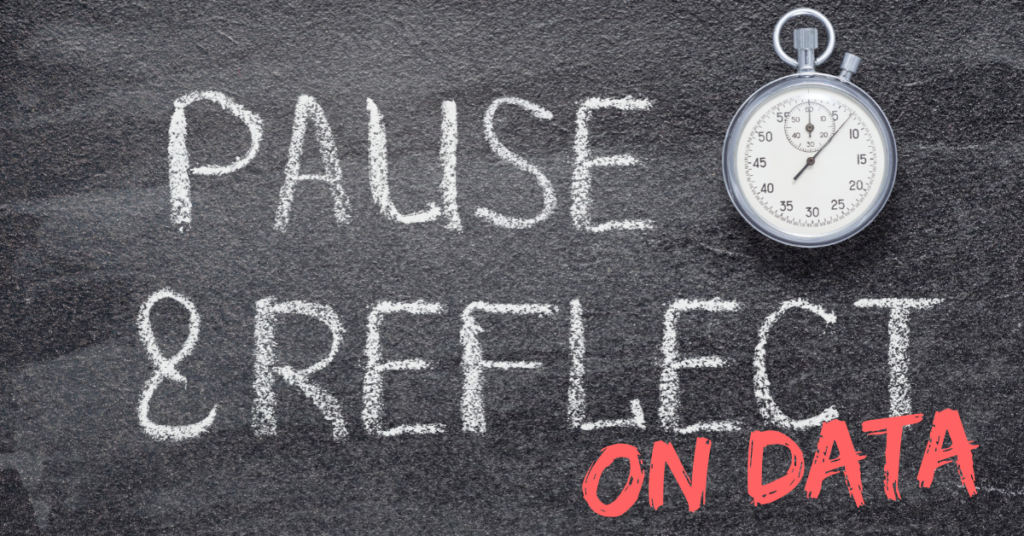I started writing this post on a different topic but realized something was gnawing at me. As we enter the end-of-year holiday season, we tend to do more self-reflection. And I started wondering what advice I would like to have given my younger self? If I am reflecting on data, what is the most important thing to know?
Define Clear Objectives and Key Performance Indicators (KPIs)
Okay, this header might technically be two things. However, they are so strongly related that it’s hard for me to talk about one without mentioning the other. The advice I would give to my younger self is to take the time to define clear objectives and KPIs.
“If I had an hour to solve a problem, I’d spend 55 minutes thinking about the problem and five minutes thinking about solutions.” – Albert Einstein.
This quote by Einstein highlights the importance of understanding your problem and objective clearly before acting.
For any business problem or project, take the time to thoroughly think about what you want to achieve. Don’t just think about the first objective that comes to mind.
Spend time considering various aspects of the problem and how they relate to other elements of your business. Brainstorm options for how you approach the problem and how you define success.
Once you have a clear understanding of the problem and your objectives, you can choose appropriate KPIs. Don’t select your KPIs too soon, or you might choose metrics that don’t align well with your objectives. Instead, identify metrics as close as possible to being direct measures of your objectives.
I know your time is limited, and sometimes making decisions quickly is important. However, if you have the time to reflect on data and your objectives, make this your top priority.
Why are Clear Objectives and KPIs Important?
First, without clear objectives and KPIs, you will be flying the airplane while trying to build it. At best, the result is that you accomplish nothing very well. At worst, you make serious mistakes, waste resources, and have to do lots of reworking.
In contrast, if you understand your objectives clearly, then you will collect and assess data with a specific purpose in mind. Your effort remains focused, takes less time, and uses fewer resources.
Second, as an entrepreneur, you know that resources are limited. Every dollar and every hour counts toward your success or failure. To maintain efficiency, you must prioritize your use of data to achieve your highest priority goals first. The rest can wait.
Third, the more closely you align KPIs with objectives, the easier it is to diagnose potential problems and adjust. When your KPIs are not closely aligned, you may not realize impending challenges until it’s too late.
Tightly aligned KPIs provide you with better information for strategic decision-making. You don’t want to overlook this part when selecting your KPIs.
Finally, when you select KPIs that accurately reflect your objective, you create an environment with more confidence. You feel better about forecasting future performance, setting benchmarks, and communicating growth to stakeholders.
Additionally, you avoid the stress of second-guessing yourself. By taking the time to find KPIs that represent your objectives clearly, you set yourself up for fewer problems in the future.
Conclusion
Reflecting on data is an important step in using data to solve problems and grow your business. When you center your efforts around clearly defining your objectives and KPIs, you create a strong foundation for the future.
As you reflect on your achievements this holiday season, ask yourself how you could improve defining your objectives. If you struggle transforming your business goals into clear objectives, I have a guide to help you fix that problem. The guide takes you through an easy step-by-step process to develop actionable data questions and KPIs.
Get your copy of the guide by << clicking here >>!




